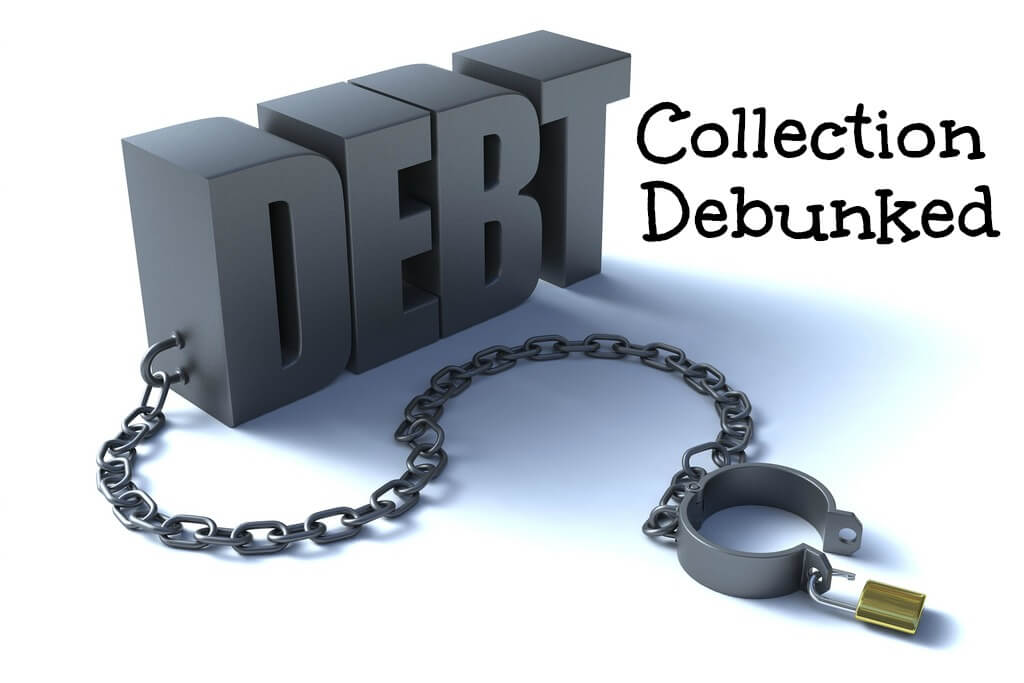We’ve all heard a myth or two about debt, collections agencies and bailiffs. But what’s fact and what’s fiction when it comes to debt collection? Here we debunk the myths associated with debt collection.
Debt collection agencies can instruct bailiffs to collect money owed for debts or take away property
A bailiff can only be instructed to act by the courts when a customer defaults on a County Court Judgement (CCJ) issued for the outstanding sum owed.
A debt collection agency cannot legally use them and anybody claiming to be a bailiff hasn’t got any power to take away your possessions.
A customer should have had plenty of notice if they’re subject to a CCJ, any bailiff sent by the court should be able to provide paperwork and identification that confirms who they are and who they are representing.
Debt collection agencies can contact you at anytime of the day
Wrong! There are strict guidelines laid out by the Office of Fair Trading which say a debt collection agency is only permitted to call you out of unsociable hours – so no late night calls and not repeatedly, as this constitutes as harassment.
Making a part payment stops the debt collectors calling and halts any legal action
Don’t be fooled into thinking that making a part payment on the debt owed will buy you more time to make further payments, this is only true if it has been specified in your original payment agreement, which they should have in writing and be able to produce when asked for.
Not making a payment for six years means the debt will be written off
This is more specific than most people believe and it refers to the 1980 Limitations Act, which specifies that a debt will become statute barred after six years if the customer hasn’t made a payment or admitted a claim, and if a County Court Judgement has not been issued against them.
Now I must be clear on this, whilst the Act can protect a customer from being forced to pay debts that have passed the time limit, the debt is not simply ‘wiped out’ – the debt remains, but the creditor can no longer pursue you through the courts for payment.
You can be jailed if you fall behind on debt repayments
Not being in a position to pay back a debt does not constitute a criminal offence – in some circumstances non-payment of government enforced fees such as council tax, magistrates fees and TV license could lead to a custodial sentence, but it’s a last resort and there are a variety of other measures that can and would be taken first.
You are liable for inherited debt
There is no law in place that means somebody else becomes responsible for the debt of a deceased person. When a collector is informed someone has died, they will contact the estate to seek their payment.
Debt collectors can overrule a court judgment if they do not agree with them
Totally false! If an offer is made to repay the debt and the court accepts it, the creditor has to accept that offer and the court’s decision is final. The debt collectors do not hold a higher level of authority than the courts.
Payments can only be taken from the account your debt is with
It is a myth that payments can only be taken from one account. For instance, let’s say you have a credit card and a current account with the same bank and you have overspent on the credit card, the bank can take funds from your current account to pay off your credit card bill without warning or prior notification.
Additional card holders and members of the household can be affected by one person’s credit score
A credit score is only relevant to the individual holding the account and it cannot have any adverse affects on anyone else’s score, or affect their future financial dealings regardless of whether they are an additional account holder or not. However, if you make a joint credit application with someone with a poor credit history it can affect your credit rating and reduce your score – You can find more information about credit applications here
Debt collection agencies and debt management companies are the same thing
They are often confused, but couldn’t be more different. Debt management companies are responsible for managing the customer’s debt in order to secure lower repayments rates and similar and may be able to write a portion of your debts off. Debt collection agencies actively seek to recover debts on behalf of their creditor clients.
So there you are, ten popular myths debunked. If you are worrying about your debt and you need some quick impartial advice why not give us a call. One of our trained advisors will help to put your mind at ease and point you in the right direction. You’re not alone, there is plenty of help out there for you.


No Comments